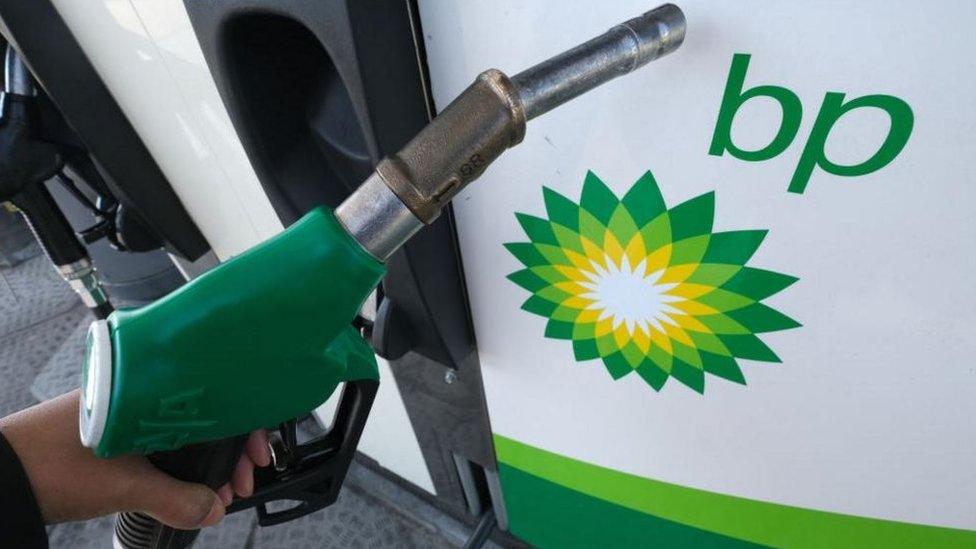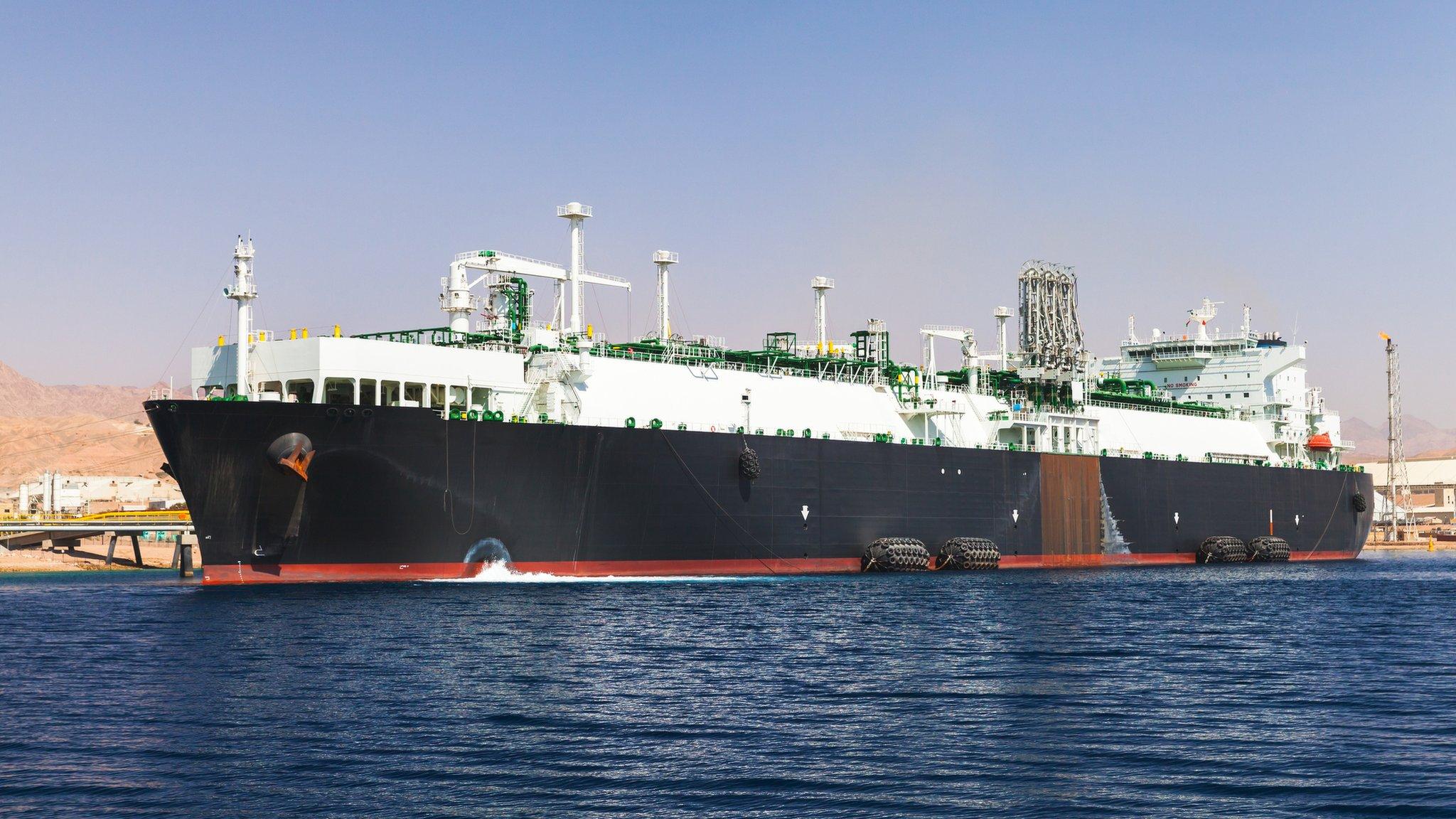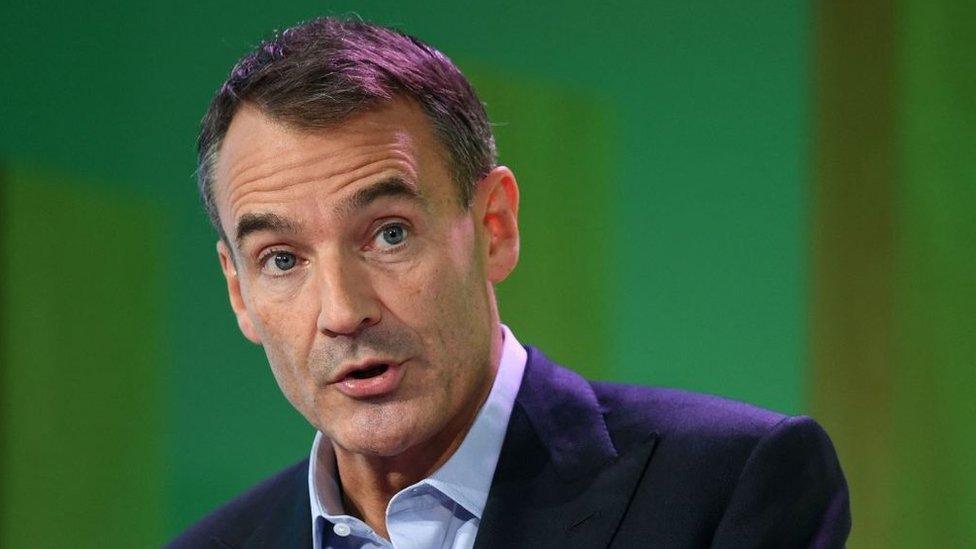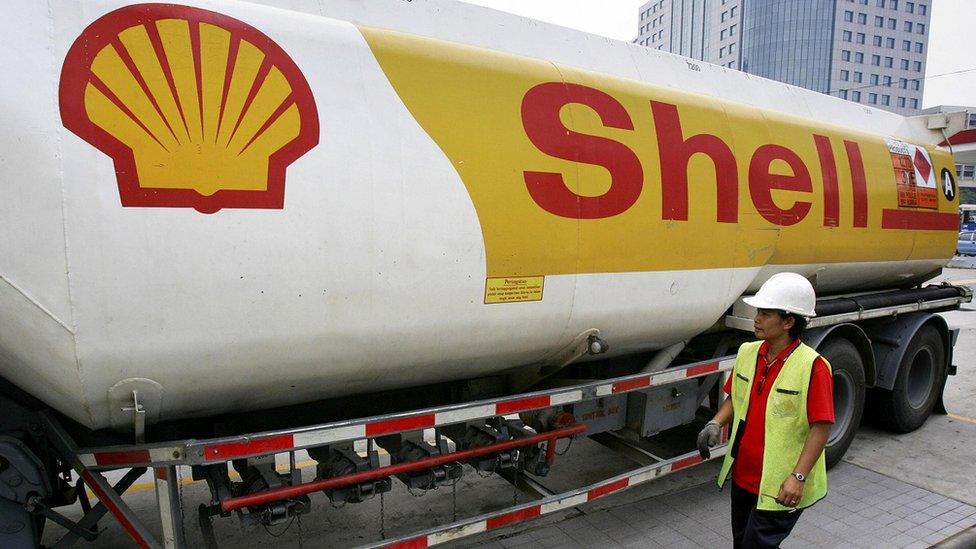BP reports second highest profit in a decade
- Published
- comments

Energy giant BP has reported its second highest annual profit in a decade, despite it being half the level it announced in the previous year.
Profits were $13.8bn (£11bn) in 2023, down from the record $27.7bn in 2022 when oil prices soared in the aftermath of Russia's invasion of Ukraine.
The price of oil fell back last year, which has cut profits at all energy firms.
However, BP said it was stepping up its plans to return cash to shareholders.
The results are the first released by BP since the company announced Murray Auchincloss as its new chief executive.
Previous boss Bernard Looney resigned last September after admitting he had not been "fully transparent" about his past personal relationships at the firm. BP's board said Mr Looney had committed "serious misconduct", resulting in him forfeiting up to £32.4m in pay and benefits.
The fall in BP's annual profits echo the results from rival Shell, who last week said profits fell to $28.2bn last year, down from $39.9bn in 2022.
However, excluding 2022's results, BP's annual profit figure was the biggest since 2012.
In the final three months of 2023, BP reported profits of $3bn, which was higher than expected, and its shares were up more than 5% by Tuesday afternoon.
The company also said it planned to increase returns to investors during the first three months of the year through $1.75bn of share buybacks. It has also committed to $3.5bn of buybacks over the first half of 2024.
BP said it expected "underlying production from oil production and operations to be higher" this year, but output from gas and low carbon energy to be lower.
The company came under fire last year from environmental groups after it scaled back plans to reduce the amount of oil and gas it produces by 2030.
Reacting to the latest results, campaign group Global Witness criticised BP's policies.
"Shareholders should want to protect their long-term positions. That means demanding a rapid clean energy transition for companies like BP. These reckless shareholder payouts do the opposite," said Jonathan Noronha-Gant from the group.
However, last week, the Financial Times reported, external that one investor group - BlueBell Capital Partners - had called on BP to scrap its targets for lower oil and gas output altogether, calling them "irrational".
But speaking to analysts on Tuesday, Mr Auchincloss said: "We just disagree with them if I'm honest.
"We are very happy with the direction of travel, and the shareholders at the top tier are happy as well."
Susannah Streeter from Hargreaves Lansdown said the priorities of BP's new boss had been made clear.
"Although on appointment he pledged that BP's strategy to transition from an international oil company to an integrated energy company was unchanged, the big share buy-back announcement shows the immediate focus is on boosting the share price and returning value to shareholders."
Nick Butler, a former head of strategy at BP, told the BBC's Today programme there had been talk that the company could be a takeover target.
"The real defence against takeovers is performance and if that's going to be the new chief executive's focus I think we can be a bit more optimistic about the company," he said.

Energy prices started to climb when Covid lockdowns ended, but jumped in March 2022 when Russia invaded Ukraine. There were fears about disruption to energy supplies and many countries imposed sanctions preventing the import of all Russian oil and oil products.
The price of benchmark Brent crude oil reached nearly $128 a barrel soon after the invasion, but now stands just below $80.
The 2022 surge in prices led all energy companies to make bumper profits. In response, the UK government introduced a windfall tax, called the Energy Profits Levy (EPL), external, on the "extraordinary" earnings of firms on their UK operations to help fund a scheme to subsidise gas and electricity bills.
This subsidy scheme ended in June last year, but while household energy bills have fallen since 2022 they still remain far higher than they had been before the war in Ukraine began.
BP said that its North Sea business paid $1.5bn (£1.2bn) UK tax in 2023, of which $720m was due to the EPL. The year before, it paid $2.2bn in tax for its North Sea operations, including $700m from the EPL.
There had been fears that oil prices might surge as a result of attacks on shipping in the Red Sea by Houthi rebels, but so far they have been little changed.
The attacks led many companies, including BP, to divert ships away from the route through the Suez Canal. It is the quickest sea route between Asia and Europe and is particularly important in the transportation of oil and liquefied natural gas.

What can I do if I can't afford my energy bill?
Check your direct debit: Your monthly payment is based on your estimated energy use for the year. Your supplier can reduce your bill if your actual use is less than the estimation.
Pay what you can: If you can't meet your direct debit or quarterly payments, ask your supplier for an "able to pay plan" based on what you can afford.
Claim what you are entitled to: Check you are claiming all the benefits you can. The independent MoneyHelper, external website has a useful guide.

Related topics
- Published18 December 2023

- Published13 December 2023

- Published1 February 2024
